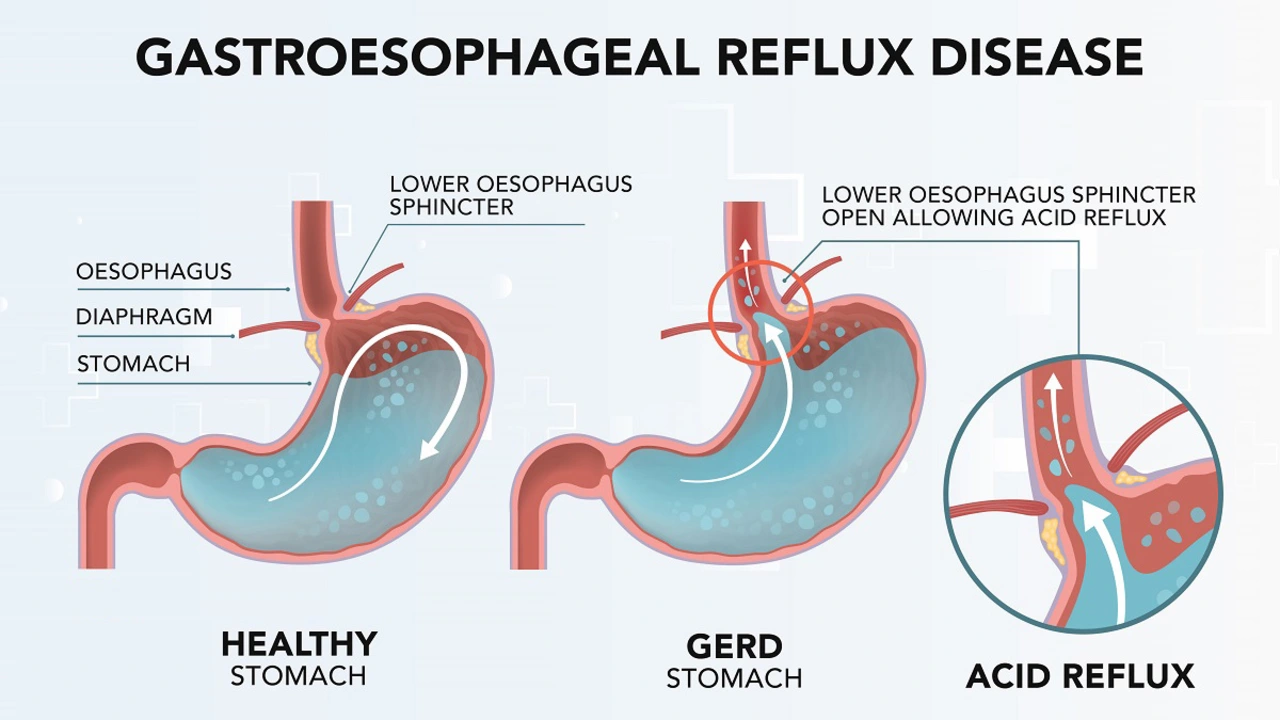Gastroesophageal Reflux Disease (GERD): What It Is and How to Handle It
Ever feel a burning sensation behind your breastbone after a big meal? That’s a classic sign of GERD, or gastroesophageal reflux disease. It happens when stomach acid climbs up the food pipe, irritating the lining and causing discomfort. Most people experience it now and then, but when it becomes a regular thing, it’s time to take action.
Common Symptoms and Triggers
Typical GERD signs include heartburn, a sour taste in the mouth, and a feeling of food getting stuck. Some folks also get a chronic cough, hoarseness, or even tooth enamel wear. Triggers vary, but spicy foods, caffeine, chocolate, fatty meals, and alcohol often make it worse. Eating large portions or lying down right after a meal can also push acid upward.
Notice how symptoms change with different habits? Keeping a simple food diary can reveal what pushes your reflux over the edge. Small adjustments—like cutting back on trigger foods or waiting two hours before bedtime—can make a big difference.
Practical Treatment Options
First‑line treatment usually starts with over‑the‑counter antacids or acid reducers like ranitidine or omeprazole. These medications lower stomach acidity and give the esophagus a chance to heal. If OTC options don’t help, a doctor may prescribe stronger proton‑pump inhibitors (PPIs) or H2 blockers for a short period.
Beyond pills, lifestyle changes are key. Raise the head of your bed by 6‑8 inches to keep gravity on your side while you sleep. Aim for smaller, more frequent meals instead of three big ones. Chewing gum after meals can increase saliva production, which neutralizes acid.
If symptoms persist despite medication and lifestyle tweaks, a doctor might suggest an endoscopy to check for damage or recommend surgery like fundoplication. Surgery is usually a last resort, but it can be effective for severe, stubborn cases.
Managing GERD isn’t about a single miracle; it’s about layering practical steps. Start with a quick review of your diet, add a modest medication if needed, and make a few nighttime adjustments. Most people see relief within weeks, and the esophagus can heal fully when acid exposure drops.
Remember, you don’t have to live with constant heartburn. Simple changes, the right meds, and a bit of patience can keep GERD under control and let you enjoy meals without the burn.

